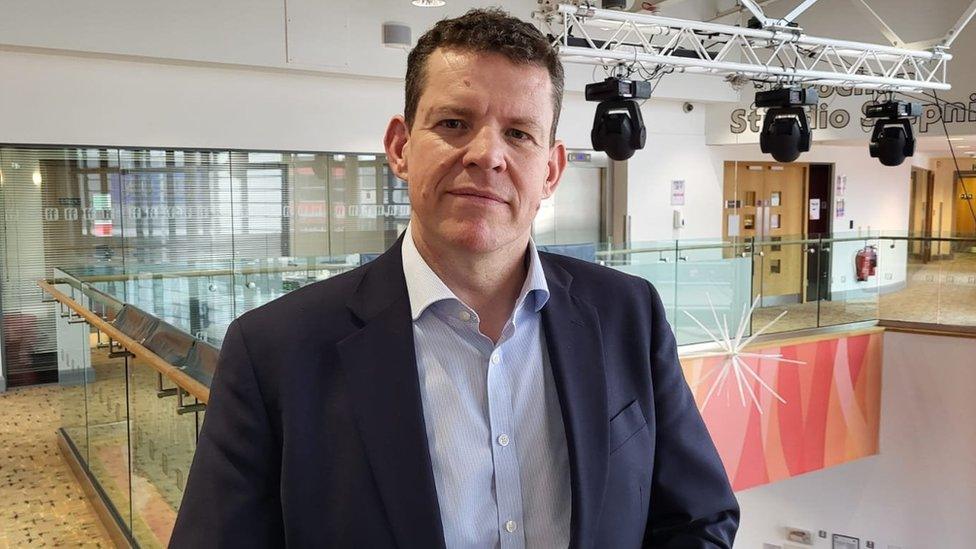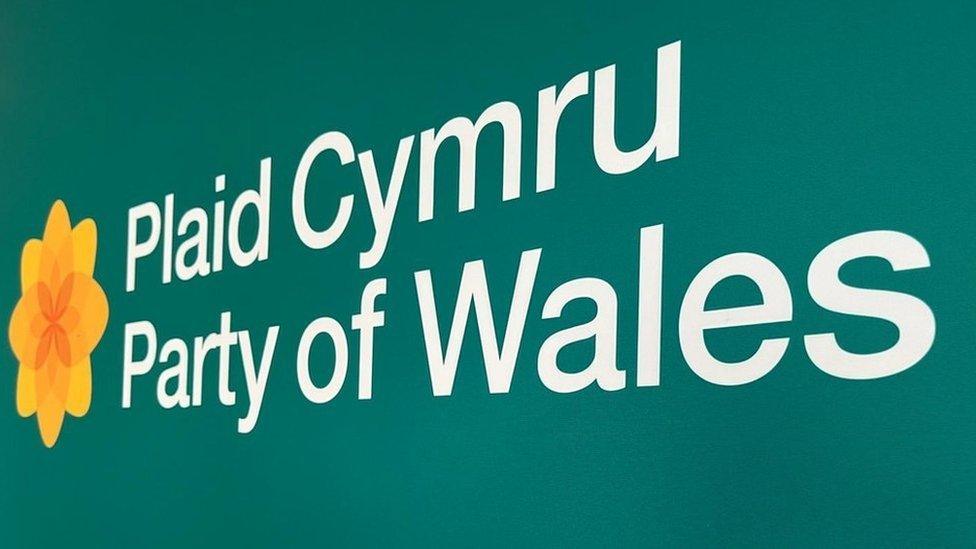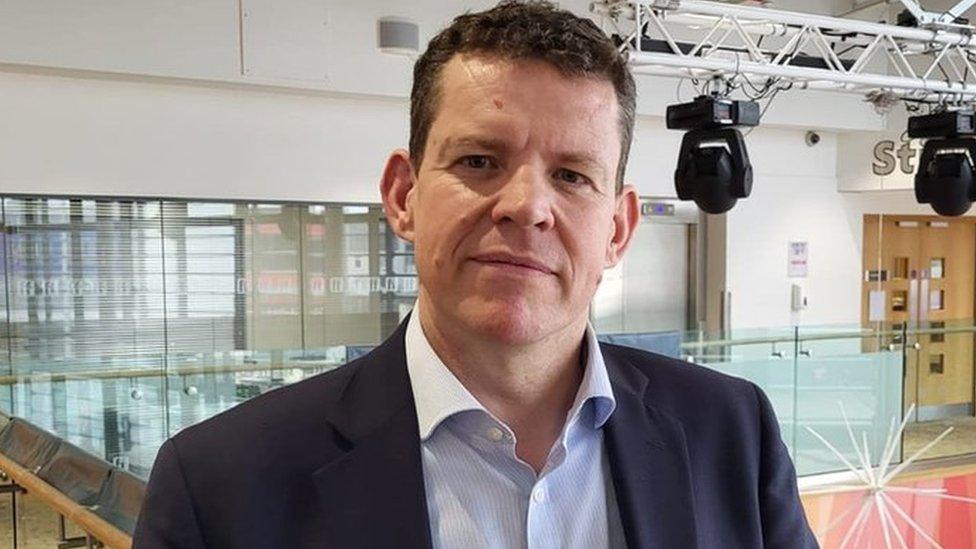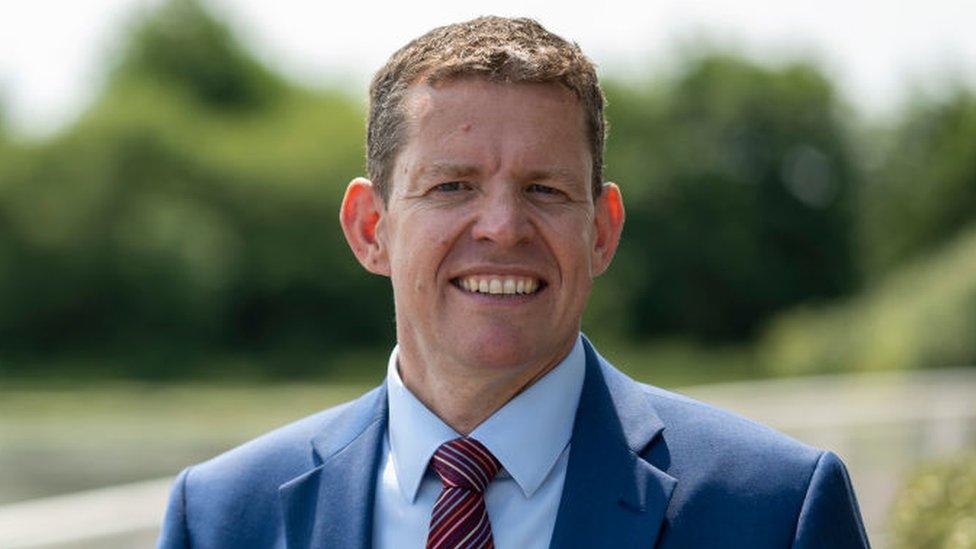Wales needs powers to set new tax rates, says Plaid Cymru
- Published

Rhun ap Iorwerth was elected unopposed as Plaid Cymru leader in the summer
Wales needs powers to introduce more income tax bands, the leader of Plaid Cymru has said.
Rhun ap Iorwerth said he wants people who earn less to keep more of their wages and people who earn more to pay more.
The Member of the Senedd for Ynys Mon set out his economic ideas in a speech in Cardiff on Tuesday.
The Welsh Conservatives claimed it would result in higher taxes for the poorest in Wales.
The Plaid leader also called for a Westminster Economic Fairness Bill to impose fair funding for Wales.
Neither that, nor powers over tax bands, can be implemented without help from a larger party in Westminster.
Currently the Welsh government can only vary the rates the UK government sets.
That is unlike the the Scottish government, which has used powers to create new tax bands to adjust how much people pay according to how much they earn.
Speaking at a news conference on Tuesday, Mr ap Iorwerth said: "What I'm saying is that we need to be able to target the people who can pay more, and to do so in a fair way, people who are on higher wages."
"In order to be able to plan ahead for a taxation system that works for Wales, we need to have that flexibility."
He would not give specifics on who should pay more.
He added: "I want a more progressive tax system so that people who are earning least are able to keep more of their wages.
"I'm calling for us to be able to use them, yes.
"What I can't talk about is what exactly the thresholds will be because we were not able to do that without having the powers in the first place.
"Scotland is a good example of the kind of thing that we might want to do in Wales, but we can't talk about those kind of things now."

Plaid Cymru has 12 Members of the Senedd and three MPs at Westminster
Mr ap Iorwerth said a law passed in the Commons was needed to address "Wales' underfunding".
There are long-standing complaints that Wales should have received billions as a result of the HS2 railway line, which was classed as English and Wales despite ending in Birmingham.
The UK government provides most of the cash needed to run Welsh government services and invest in infrastructure, with a smaller proportion raised from tax.
The amount is determined by the Barnett formula.
Plaid argues that Wales' funding should be based on its needs.
A recent report by the Welsh government's chief economist said public spending per head in Wales was lower than Scotland or Northern Ireland, but higher than England overall and most English regions.
In his speech, Mr ap Iorwerth, who became party leader last summer after the resignation of Adam Price, said Wales has a "persistent underperformance" that needs to be addressed.
"Creating a fair society should be an ambition for all of us, collectively," he said.
"We shouldn't rest until we can look around our communities and see that no-one is being left behind."
Andrew RT Davies, Welsh Conservative Senedd leader, said: "Plaid Cymru has borrowed the Scottish nationalist playbook on taxation, and the outcome will be higher taxes for the poorest in Wales.
"As we have seen in Scotland, people on higher wages will consider leaving if tax rates aren't competitive with other parts of the UK, and the outcome will be a higher tax burden on the lowest earners."

BINGE-WORTHY DRAMAS: Amazing worlds and spectacular stories, all filmed in Wales
THE CRASH DETECTIVES: Every serious incident on the road requires forensic examination

Related topics
- Published6 October 2023

- Published16 June 2023

- Published16 June 2023
